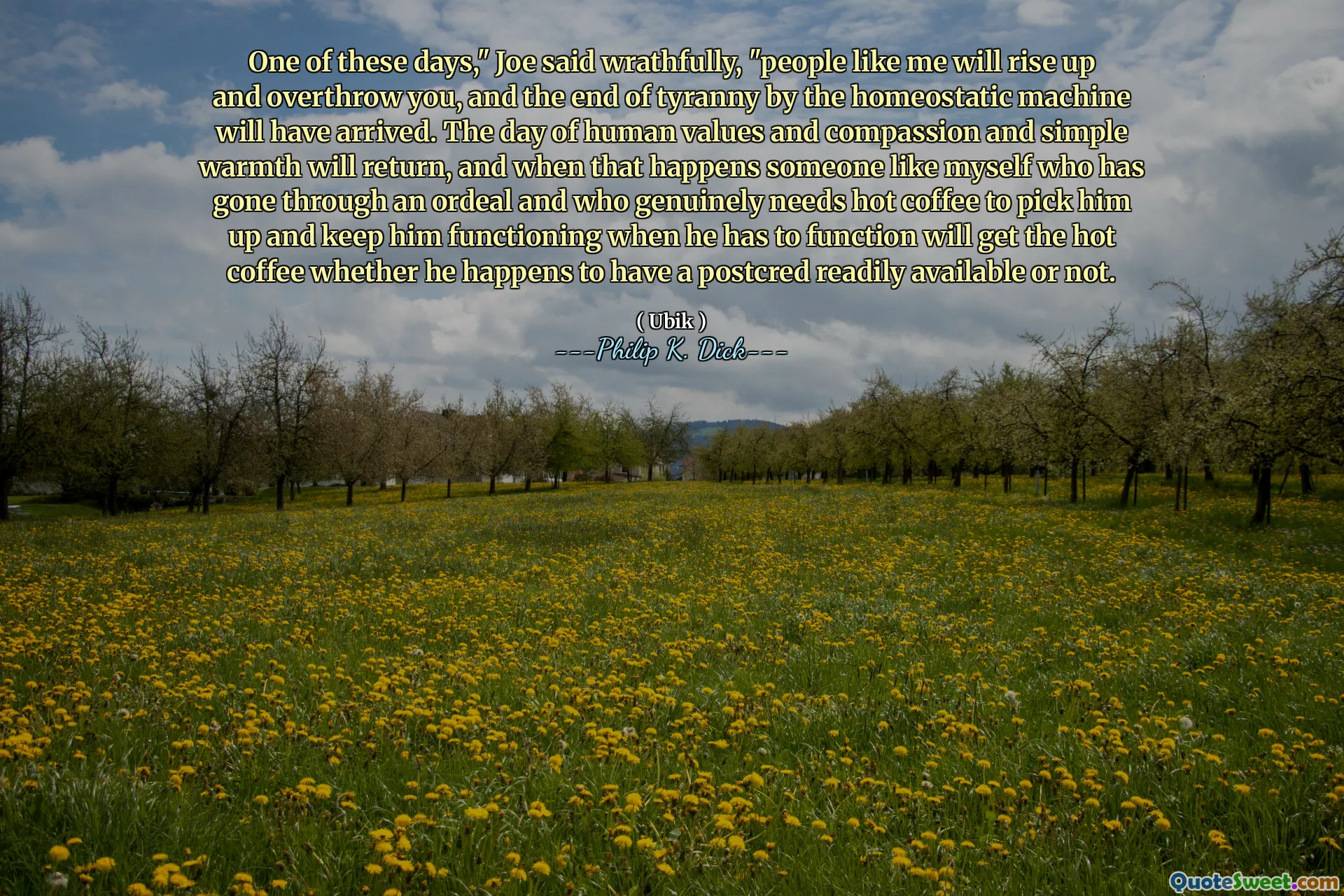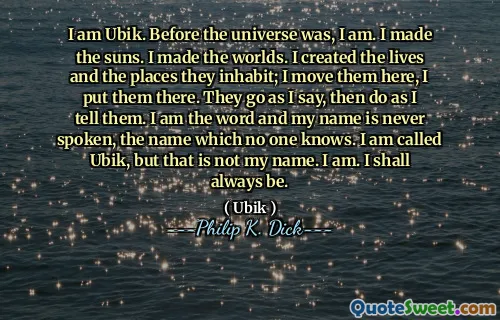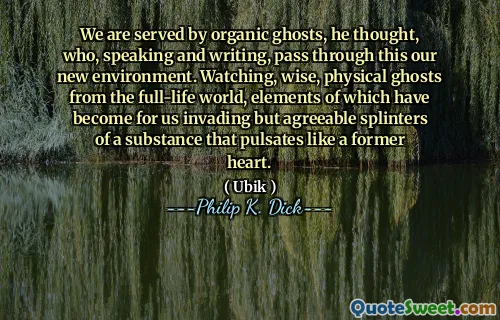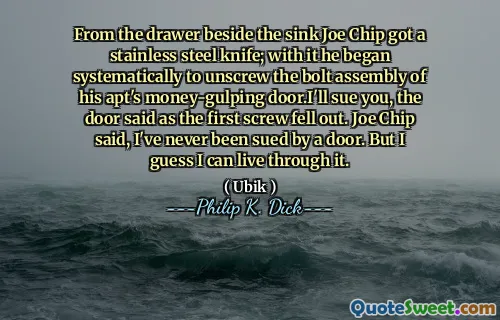
One of these days," Joe said wrathfully, "people like me will rise up and overthrow you, and the end of tyranny by the homeostatic machine will have arrived. The day of human values and compassion and simple warmth will return, and when that happens someone like myself who has gone through an ordeal and who genuinely needs hot coffee to pick him up and keep him functioning when he has to function will get the hot coffee whether he happens to have a postcred readily available or not.
In Philip K. Dick's "Ubik," Joe expresses his deep frustration and anger towards a society dominated by cold, mechanical systems that prioritize efficiency over human needs. He envisions a future where people like him will rise against this tyranny, reclaiming human values such as compassion and warmth. Joe's struggle highlights the clash between humanity's emotional needs and a rigid, impersonal system.
This yearning for a more compassionate society is crystallized in Joe's desire for something as simple as a hot cup of coffee. It symbolizes a broader need for basic human care and connection, emphasizing that individuals facing hardships, like Joe, should not be marginalized by a system that often overlooks personal circumstances in favor of strict regulations. His statement serves as a powerful reminder of the importance of empathy in the face of mechanized existence.











